Hazards, Maltreatment, And Human Rights Violations At Dangote Refinery
While labour laws require work environments to be safe and healthy, this was not the experience of some of those who worked at the Dangote oil refinery and fertiliser plant in Lagos.
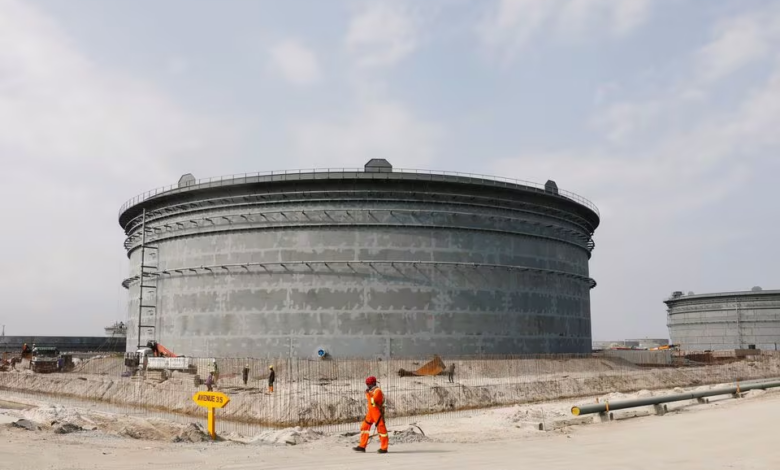
Weeks after Rasheed Adewoyin* submitted his CV at the Dangote refinery’s security post, he was offered a job as a scaffolder at the fertiliser plant by an Indian company, Onshore Construction Company Pvt. Ltd (OCCPL), which was in charge of structural engineering, large-scale piping, and heavy equipment erections.
The company offered to pay him ₦75,000 ($60) per month when he assumed the role in May 2019. He recalled that every morning when they resumed work, over 500 employees were mandated to queue as private security personnel, police officers and soldiers screened them before allowing them into the site. Even when they were thirsty, hungry, and had aching muscles, the queue was maintained.
One morning in July 2019, the queue was so long that many people were already tired of standing in the cold. A concerned soldier then ordered the workers to divide the queue into two.
“I was among the first set of people who left the single line to create another one following the instruction,” Adewoyin said. “But the soldier’s colleagues, who did not hear when he gave the instruction, asked us to sit on the floor and started beating us. I was injured with the butt of their guns on my right eye. I wanted to report to the Chief Security Officer (CSO), but the security agents did not allow me.”
He took his grievance to Twitter (the social media platform now known as X).
The public outrage that followed his post got to his employers at OCCPL and the CSO of the refinery, who later apologised on behalf of the undisciplined soldiers. He visited an eye clinic in the Victoria Island area of Lagos the following day and also took three days off to heal properly.
“The CSO returned half of the money I spent on my treatment.”
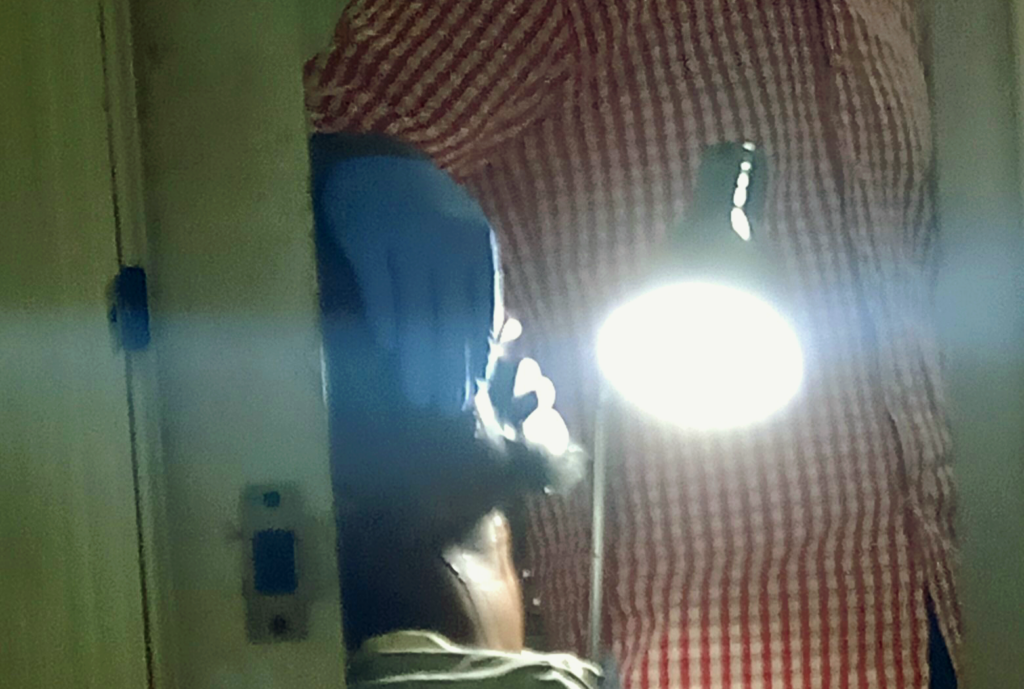
Adewoyin’s case was neither the first nor the last.
Despite being Africa’s largest producer of oil and gas, Nigeria spends billions of dollars annually to import fuel because the four major oil refineries in the country have long been shut down due to poor maintenance. To mitigate the social impacts of sending crude abroad to be refined before shipping it back, the federal government introduced fuel subsidies which made petrol cheap for citizens while the government covered part of the cost of importation. The system would later become a burden as it was exploited and the subsidy became difficult to remove.
When it was obvious that the government was spending the bulk of its revenue to pay fuel subsidies, having a functional refinery became the heart of debates over other policies in Nigeria. Africa’s richest man, Aliko Dangote, stepped in to solve the yearly fuel problems when he announced plans in 2013 to build a local refinery. He also built a multi-billion dollar fertiliser plant in the same compound with the refinery at the Ibeju-Lekki area of Lagos, South West Nigeria — a project that was commissioned in March 2022.
HumAngle investigated cases of gross abuse of rights allegedly perpetrated by security personnel and contractors during the construction of the two projects.
A few days after Nigeria’s ex-president, Muhammadu Buhari, commissioned the 650,000 barrels per day Dangote refinery in 2023, many people took to social media to give accounts of distressing incidents that unfolded at the construction site.
While the International Labour Organization (ILO) states that a work environment should be safe and healthy to promote human dignity, this was not the experience of some of those who worked at the Dangote oil refinery and fertiliser plant. Many people who shared their stories said they were subjected to abuse, from maltreatment by security agents to hazardous work without protection, leading to physical injuries and even the death of some of their colleagues.
They also accused the Indian construction companies awarded the contract of racism and worker exploitation.
Between June and December 2023, HumAngle tried to speak with people who alleged they were abused at the Dangote Refinery Complex, but our efforts were futile until January this year. While many people declined to narrate their ordeals because of fear of backlash and possible arrest, some told us they weren’t comfortable reliving the bitter experiences.
“As much as I am glad about your efforts to document the happenings at the refinery and the fertiliser plant, people won’t respond to you except they won’t mention their names. Everyone is scared of saying anything about the project of Africa’s richest man,” one person said.
HumAngle contacted the individual contractors who were accused of abusing their workers on the site for reactions, but none of them responded to our calls and emails.
When we shared our findings with the spokesperson of Dangote Group, Anthony Chiejina, he denied the allegations. “We have excess provisions for PPEs. Anybody can say anything. Once Dangote is not in the news, no news,” he said. “People can come out to say what they like. Some people wake up to say anything they like. Some people can come and steal in the organisation and they will never tell you that they stole.”
Asked if he was aware of the allegations against some of the contractors employed by Dangote Group, he said he could not speak on behalf of the “thousands” of contractors.
“This is a project that is (just) beginning, unlike Mobil and Chevron and co that have been here for donkey years. Nobody is asking about PPE. Nobody is asking about human rights.”
The day before Adewoyin was attacked by soldiers, some of his colleagues protested at the gate over the abuse of a worker who was said to be in his 60s at the time. According to him, a person does not need to have broken a rule “to become a victim of oppression at the refinery”.“I know of someone who was severely beaten for an offence he did not commit. He was returning from the toilet when some police officers accused him of vandalising cable. Before he could explain himself, they started beating him.”
Adebowale Adeosun, who worked at both the refinery and the fertiliser plant between 2017 and 2022, corroborated Adewoyin’s account. According to him, at least seven out of 10 people working at the refinery have either witnessed abuse of their colleagues or been victims themselves.
“There is nothing like fundamental human rights at the refinery. From the moment you step your feet into the gate, the securities are ready to intimidate you. There was a day I was running to get a vehicle to take me home and some soldiers asked myself and a colleague to sit on the floor from 6 p.m. till past 7 p.m. at the gate.”

‘Deaths’
Aside from abuse by security agents, there have also been cases of physical injuries, which sometimes lead to death. Though Nigeria has no database of labour incidents, there are several reports of accidents in factories. According to the country’s National Policy on Occupational Safety and Health, “it is the duty of every employer to ensure, so far as is reasonably practicable, the safety, health and welfare of all workers.”
The duty includes the arrangement of the workplace to ensure safety and absence of risks; provision of occupational health protection and personal protective clothing and equipment that are appropriate for the nature of the job at no cost to workers; provision of instruction, training and supervision necessary to ensure safety and health of all workers; and the provision of adequate first aid facilities.
At the Dangote refinery complex, many workers say they are used to putting on flip-flops and torn gloves instead of safety boots, gloves and helmets, a development that has exposed a lot of people to dangers during accidents. Before they were deployed to the refinery after the COVID-19 lockdown period, both Adewoyin and Adeosun worked at the fertiliser plant. They shared stories of injuries, sometimes fatal, suffered by their co-workers.
“Before I left the refinery, a colleague died as a result of a machine malfunction,” Adewoyin alleged. “He lost a lot of blood and could not survive the incident. The truth is that the contractors given the job care less about safety. I know of a colleague who died after an iron beam fell on him. It is not only Nigerians that are affected by these [anomalies] because many Indians also lost their lives. So there are uncountable cases.”
Some of the fatalities were said to have occurred during the COVID-19 pandemic when hundreds of workers, including Chinese and Indians, were locked in the construction site by contractors handling different projects amid violations of social distancing rules. According to a Premium Times investigation published in May 2020, after Satyendra Sharma, a health and safety manager at the fertiliser plant, reportedly died of coronavirus, another Indian, Shivajeet Kumar, who worked as a mechanical engineer, hanged himself on April 26, 2020, after testing positive for the infection.
A video also surfaced on YouTube on May 2, 2020, as aggrieved Indians employed by GTA Power Mech Nigeria Limited called on their government to protect them from forced labour in Nigeria.
“We, the citizens of India, are speaking from Dangote Refinery, which is situated almost 60km away from Lagos in Nigeria. We are workers of the Dangote Refinery. The whole world is suffering from coronavirus, which is a global pandemic. Nigeria has also announced its lockdown. During this lockdown, the workers of Power Mech Company are forced to work. The staff here are forcing us to work through physical violence. We request our Home Minister, Mr Amit Shah, and Prime Minister, Mr Narendra Modi, to kindly understand our problems and help us get out of this situation by taking necessary steps to protect and save our lives,” the leader of the aggrieved workers said in the video.
The Indians’ accounts were corroborated by Nigerian workers who said the contractors they worked for threatened to sack them if they resisted the forced labour during COVID-19. As a result, many agreed to remain on the site to the detriment of their health. Dozens of them passed the nights in containers without proper feeding.
Little safety
Narrating his ordeal, Tajudeen Ogunrinkoye, who worked at the Dangote site between 2016 and 2022, said the Indian contractors who never provided them with personal protective equipment (PPE) usually made fun of them when they sustained injuries and even called them “foolish and ignorant”.
He was first employed by OCCPL as one of the riggers offloading heavy metals and other equipment from containers at the fertiliser plant before he was deployed to the refinery to work as a scaffolder. He was not entitled to an allowance aside from his ₦35,000 monthly salary. Even when an iron pipe injured him on his finger, he said his Indian employers did not show any concern.
“I took myself to the hospital where my finger was stitched on the same day but was advised to stay away from work for a week so that my injury could heal while I went to the hospital every day to dress the wound. There were times we complained when they asked us to work under containers held with a crane without helmets or any safety, but our supervisors would tell us that if we could not work, we should go. Since many of us did not have other means of survival, we usually went ahead with the work.”

What the law says
Allegations and stories shared by Nigerians on social media and multiple sources who spoke with HumAngle show a pattern of abuse by contractors who hardly take the rights of their employees seriously.
Most of the people employed for the construction of the refinery and fertiliser plant were ‘casual workers’. Nigeria’s Labour Act, however, does not have clear provisions safeguarding the rights of such a group of workers. What it does say is that an employer must provide a written statement stipulating the agreed terms within three months of a person’s employment. The statement would stipulate the nature of the employment, the hours of work, the rates of wages, and other conditions.
This was not the case for many of those employed during the construction. Multiple sources told HumAngle they worked for several years without an official letter of employment from their respective employers, making it difficult for them to hold the contractors accountable. For instance, Ogunrinkoye was forced to resume work after a week despite having bandages around his finger because his employer had the habit of deducting workers’ salaries whenever they were absent from work, regardless of the circumstances.
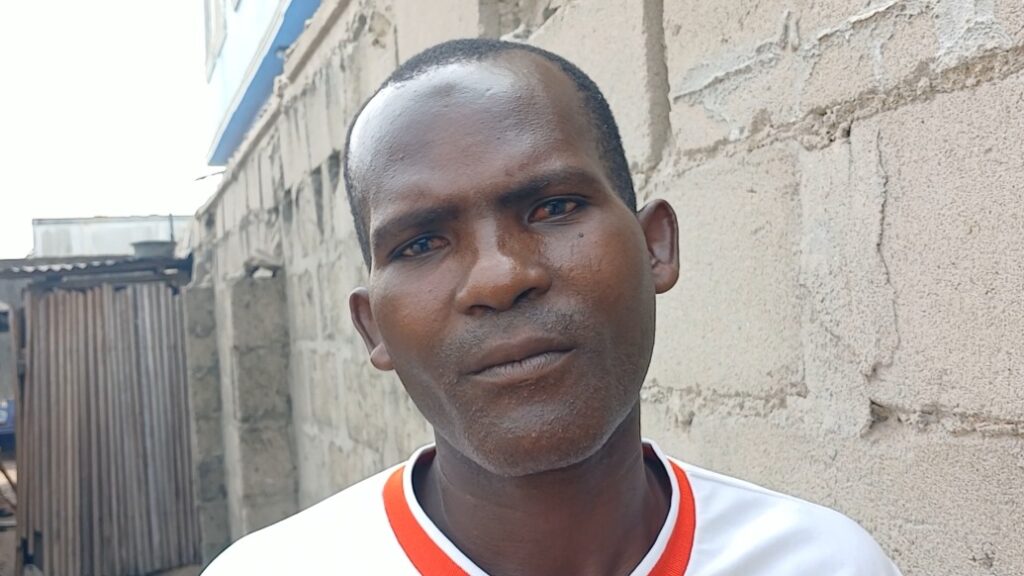
“We usually work from Sunday to Saturday and there’s nothing like sick leave. To my surprise, my employers removed the number of days I spent at the hospital from my salary at the end of the month,” he told HumAngle. “The saddest day of my life as a construction worker at the refinery was the day a manlift injured a colleague. We saw him in a pool of blood and protested that we won’t work unless the victim is given adequate treatment.”
In various cases, Nigerian courts have ruled in favour of workers injured in the course of duty and whom the companies avoided compensating using the pretext that they were not under their employment. In one case decided in 2014, the National Industrial Court relied on the definition of an employee by the Employees Compensation Act, which states that it refers to anyone contracted orally or through a written agreement “whether on a continuous, part-time, temporary, apprenticeship or casual basis … in the formal and informal sectors of the economy”.
Reacting to this, lawyer Mubin Anamo blames the inhumane treatment of casual workers on the failure of the Nigeria Labour Congress (NLC) and Ministry of Labour to protect their rights.
“The officials responsible for ensuring the welfare of workers have been compromised, and that’s why you see some of these contractors carrying out illegalities on construction sites,” he said.
When contacted, NLC spokesperson Benson Upah confirmed that the “casualisation of workers” is an offence under the law and promised to react accordingly following this report’s publication.
‘Same treatment for employees’
Unlike those employed by contractors as casuals, Falilu Talibu was employed as a Junior Attendant on grade level 1 by Dangote Project Limited for the refinery in May 2020. Before his official appointment, he took part in a six-month basic national open apprenticeship scheme held for prospective workers by Dangote Refinery and the National Directorate of Employment in 2019.
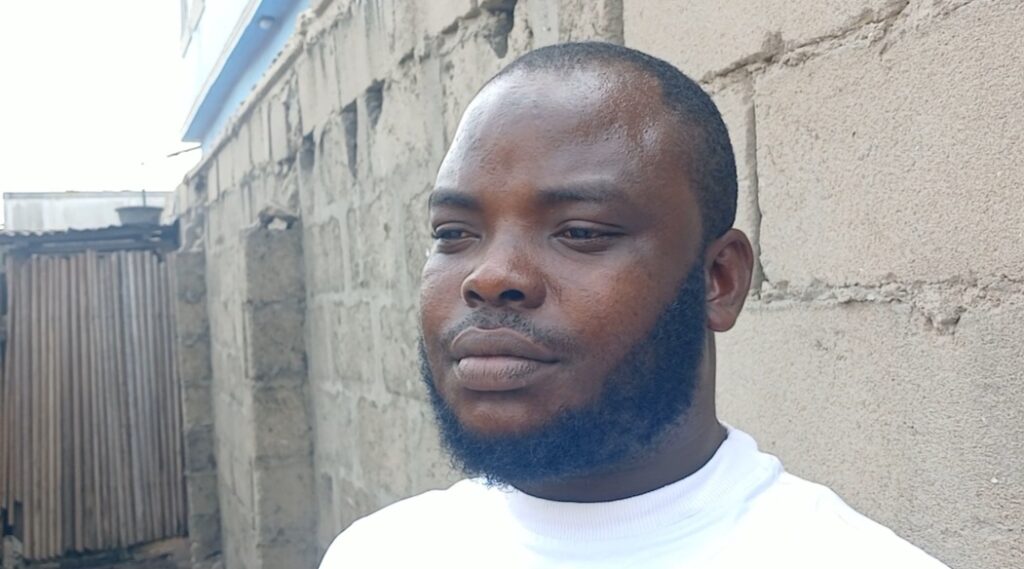
By the time he resumed at the fertiliser plant and refinery site, he was forced to do work outside his job description.
“I was employed as an electrician but was forced to carry heavy equipment that should ordinarily be carried with forklifts. The Indians would always tell us to use our money to buy boots, helmets and gloves despite knowing that my job as an electrician is delicate. The sad reality is that we see some of these expatriates using the PPEs while we were being treated as slaves.”
His friend, Sanusi Waliu, who was employed through the same process for refrigerator and air conditioner repairs, was also directed to do things outside his job description on several occasions. One evening in January 2021, some of the artisans protested when they were asked to dust and oil machines at the fertiliser plant without the provision of nose masks. Not pleased by their reaction, the contractors on the site banished them from entering the refinery the following day.
“We never got a sack letter, but our names were pasted at the entrance of the refinery gate, and we got chased by security personnel anytime we went there. It was a verbal termination of employment,” said Waliu.
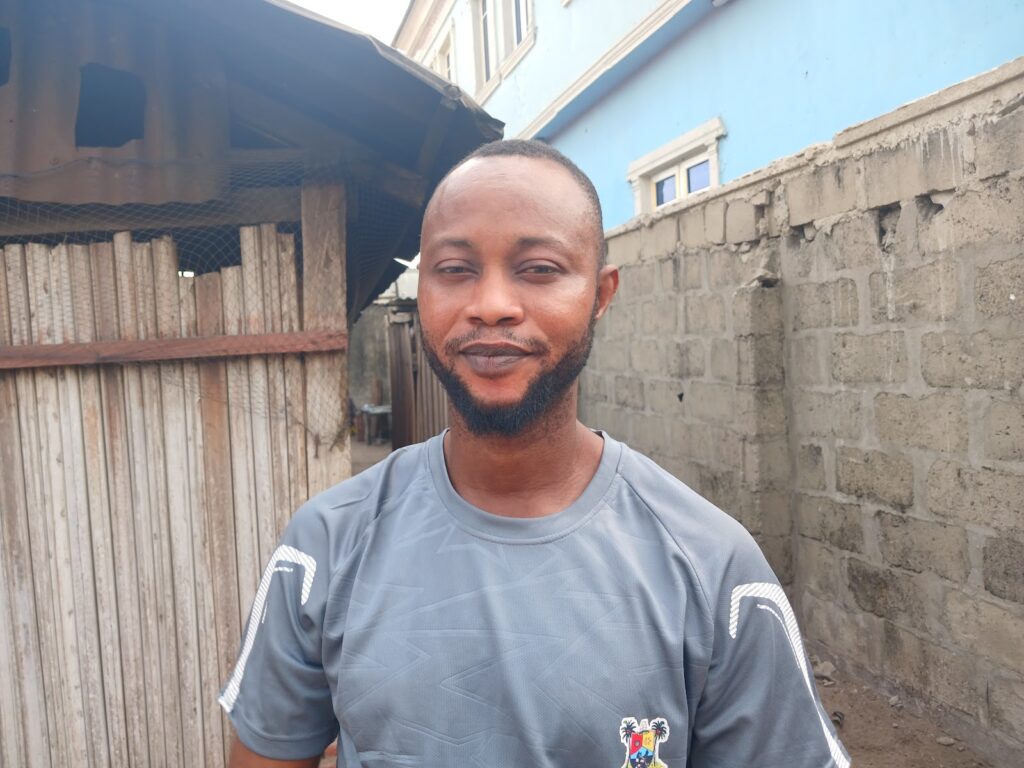
The appointment letters issued to the two states that “the company and you (employee) can terminate the employment by giving one-month notice or pay one-month salary in lieu of notice. However, during the probation period, the notice shall be two weeks on either side.” But, both men said this term was not respected by their employer.
In November 2020, many workers at the refinery took to the streets of Ibeju-Lekki to protest the poor welfare conditions they were subjected to by various contractors handling the projects. Though several media outlets reported that one person was shot dead by police officers deployed to disperse the protesters, HumAngle could not get any evidence to support the claim during the course of our investigation.
“The police deployed to attack us teargassed a lot of protesters, and a guy fainted in the process. As we were trying to revive him, they (police) chased us away, so we are not sure whether he died or not,” said Adewoyin, who was present at the scene of the protest.
“When we returned to work after the protest, we were asked to sign an oath that we would not protest again. I feel bad whenever I remember my experience, but I thank God.”
Support Our Journalism
There are millions of ordinary people affected by conflict in Africa whose stories are missing in the mainstream media. HumAngle is determined to tell those challenging and under-reported stories, hoping that the people impacted by these conflicts will find the safety and security they deserve.
To ensure that we continue to provide public service coverage, we have a small favour to ask you. We want you to be part of our journalistic endeavour by contributing a token to us.
Your donation will further promote a robust, free, and independent media.
Donate HereStay Closer To The Stories That Matter




